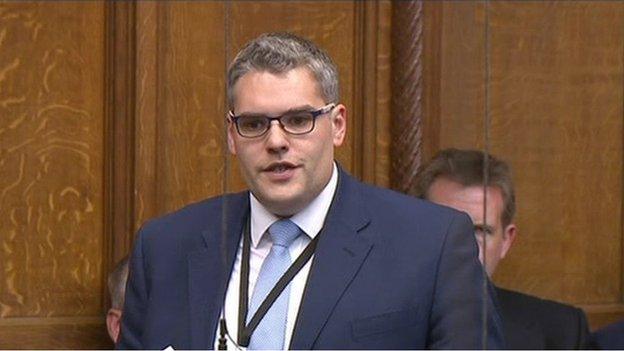Stormont talks: Charlie Flanagan joins negotiations
- Published
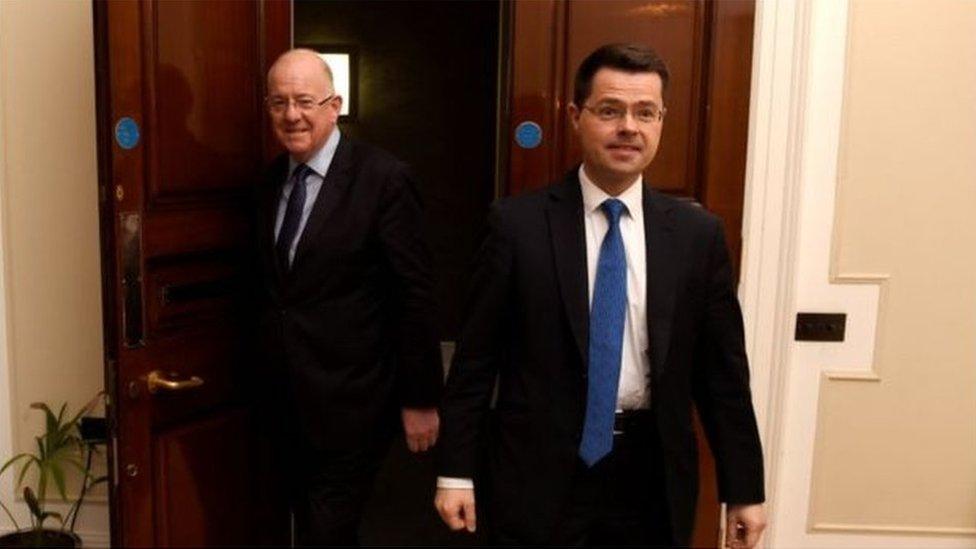
Mr Brokenshire, right, said there was a sense of urgency to the talks
The Irish foreign minister has warned talks to restore Stormont's institutions were operating under a "tight time frame".
Charlie Flanagan met NI Secretary James Brokenshire and also talked to some of the parties at Stormont on Wednesday.
Thursday's election ended the unionist majority at Stormont with Sinn Féin now just one seat behind the DUP.
Talks are being held to restore the power-sharing executive, but parties have just three weeks to reach a deal.
Mr Flanagan said: "I detect a willingness on the part of all parties involved to sit down and engage constructively in what is a challenge."
Mr Brokenshire, who arrived in Belfast after having heard the chancellor deliver his budget in London, said there was a sense of urgency to the talks, adding that he wanted to see a solution as soon as possible.
The secretary of state said he welcomed the £120m funding for Northern Ireland announced in the budget, adding that this "underlines the need for an executive to be in place in order to take that work forward".
Speaking after meeting Sinn Féin on Wednesday, DUP leader Arlene Foster said more meetings were planned.
"The dialogue continues in a very good nature, I think that's positive and obviously the focus is on getting devolution up and running again and as quickly as possible," she said.
"My team has met Sinn Féin on legacy issues today and we have been talking about the Stormont House Agreement, we have been talking about all the issues that have concerned us, including the issues around soldiers and how they are treated, how members of the security forces are treated, dealing with issues about the past."

Analysis: Enda McClafferty, BBC News NI political correspondent
Sinn Féin says the Irish government has a central role in the talks as a co-guarantor of the Good Friday Agreement.
It is likely to push Mr Flanagan on the outstanding commitments from previous agreements.
For his part, Mr Flanagan has already been in touch with party leaders, and said there was a willingness on all sides to resolve their differences.
But, he said, with Brexit around the corner there is an urgent need for an effective executive to be in place.

Sinn Féin broke off its meeting with Mr Brokenshire on Tuesday and said all he did was "waffle, waffle, and more waffle".
Its northern leader, Michelle O'Neill, said he had still not agreed to release funds for legacy inquests.
BBC News NI looks at the next steps for the Stormont Assembly
Mrs Foster said that waffle was a very pejorative term to use, adding that the DUP had had "very good engagement" with Mr Brokenshire.
Earlier, following a meeting with Mr Flanagan, Mrs O'Neill said: "It is a time for strong political leadership and delivery.
"The British government is holding up access to due process for families. They are key players in this. They need to step up to the plate."
The parties described their two days of talking as business-like, but said there was no sign they were close to resolving the big stumbling block - Sinn Féin's refusal to work with Arlene Foster as first minister while her role in a botched renewable energy scheme is being investigated.
The DUP went into last Thursday's election 10 seats ahead of Sinn Féin and, while it remains the largest party with 28 seats, its lead has been cut to just one seat.
Under Northern Ireland's power-sharing agreement, the government must be run by Irish nationalists and unionists together, with the largest party being invited to put forward a candidate for first minister.
Sinn Féin and the DUP now have three weeks to reach a deal and if a government cannot be formed within that time then, under law, another election can be called.
Ultimately, if no power-sharing government is formed, power could return to the UK Parliament at Westminster for the first time in a decade.
- Published7 March 2017
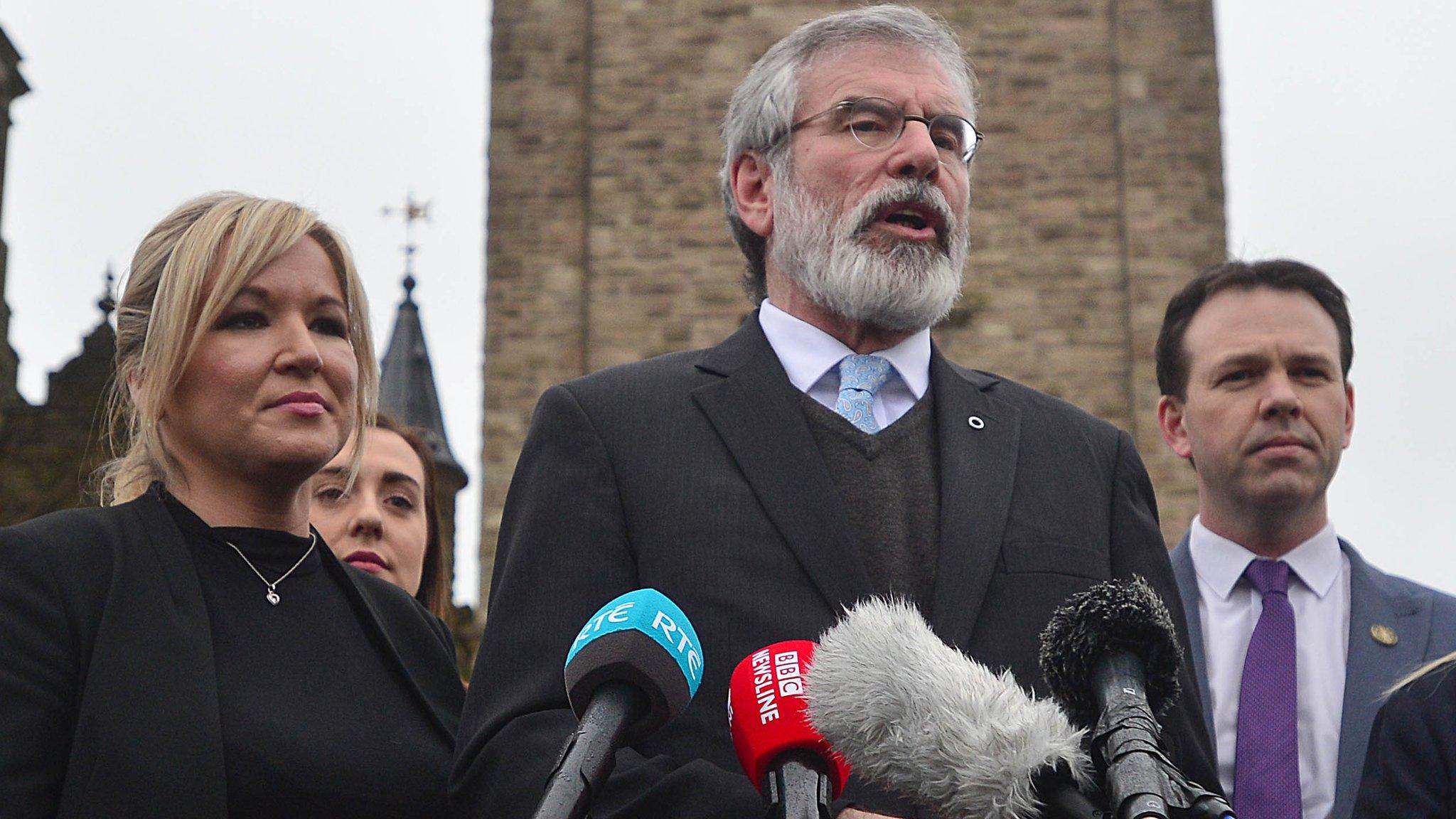
- Published6 March 2017
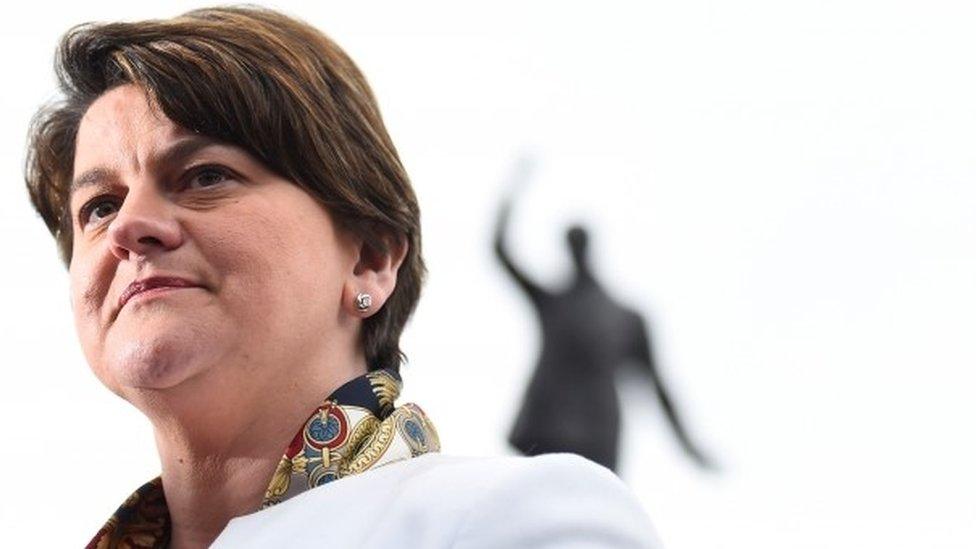
- Published5 March 2017
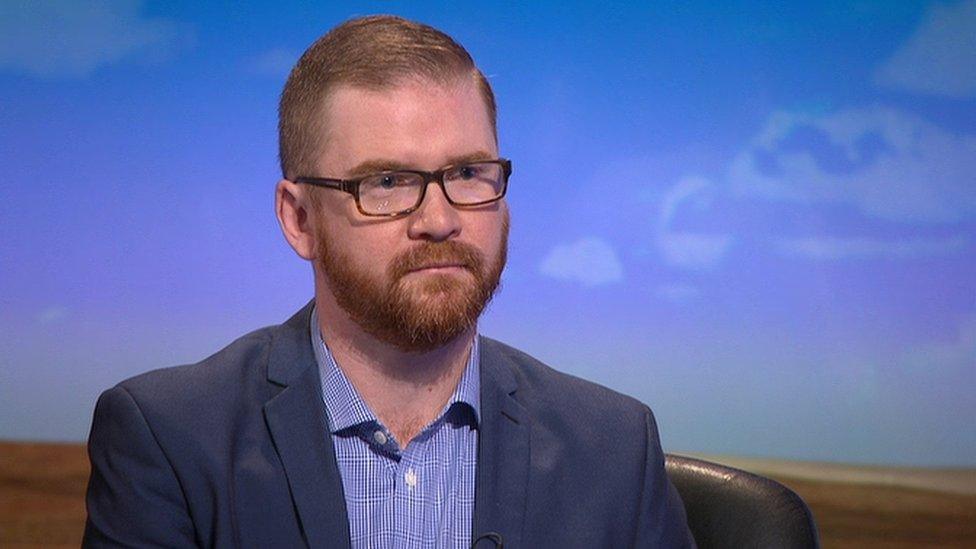
- Published5 March 2017
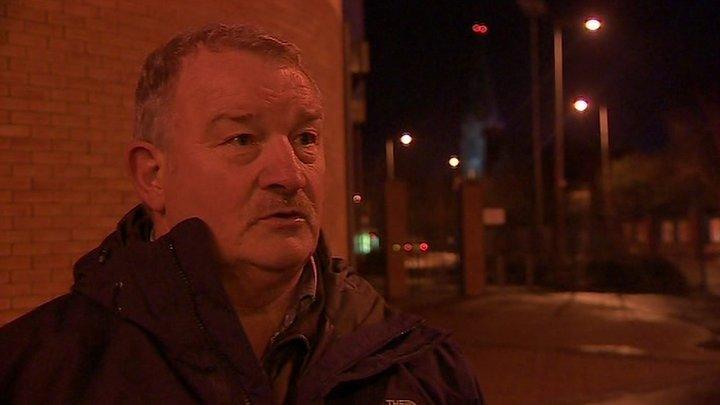
- Published4 March 2017
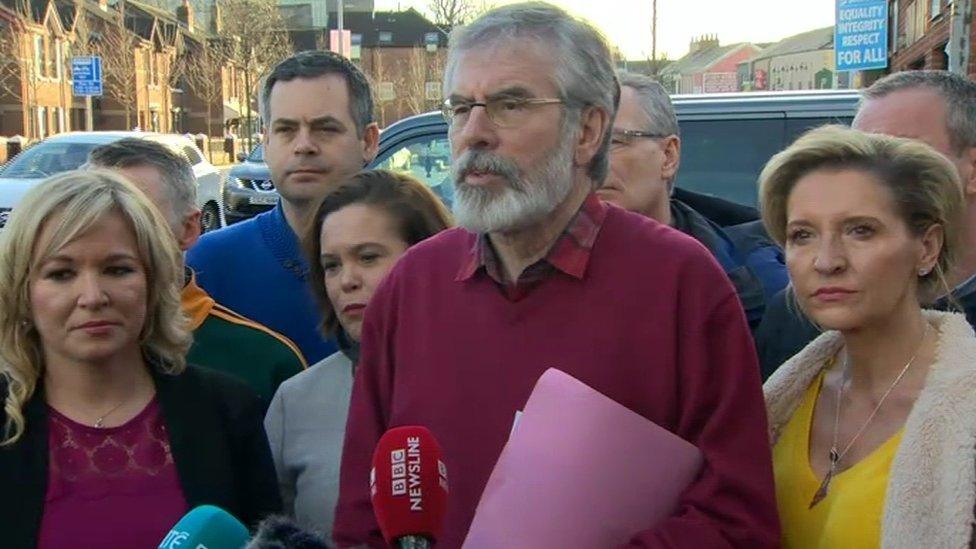
- Published4 March 2017
